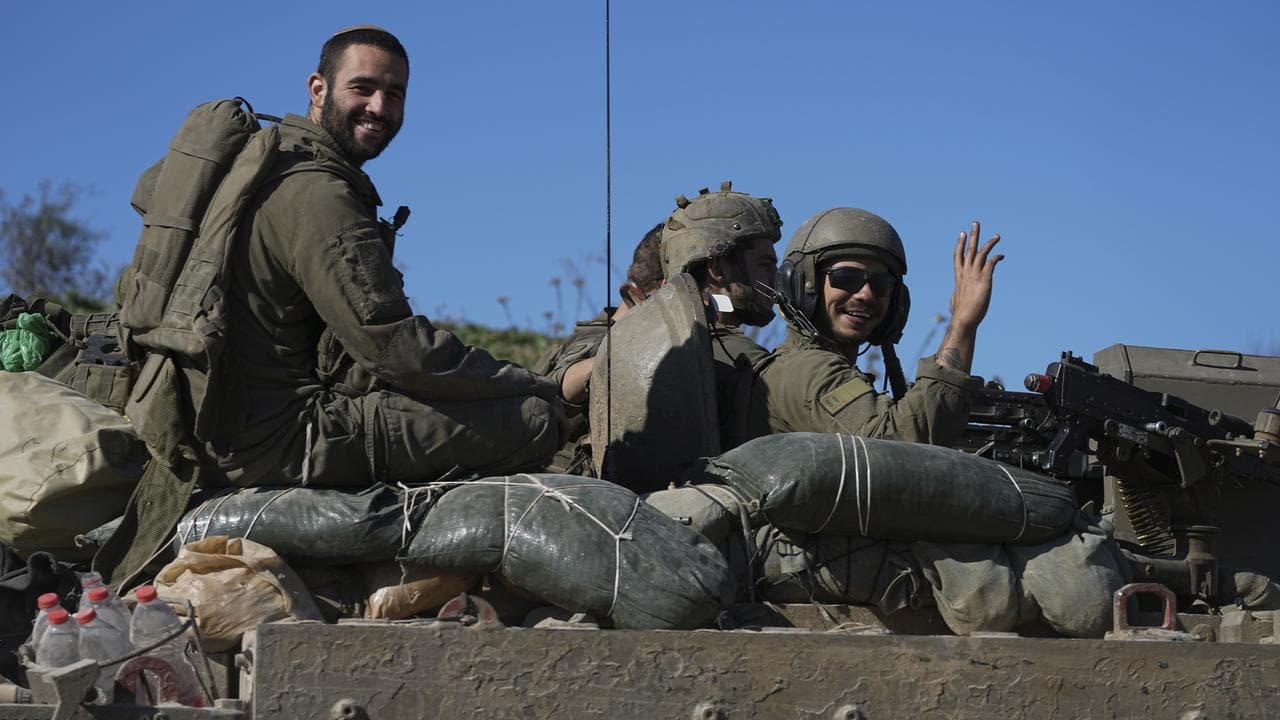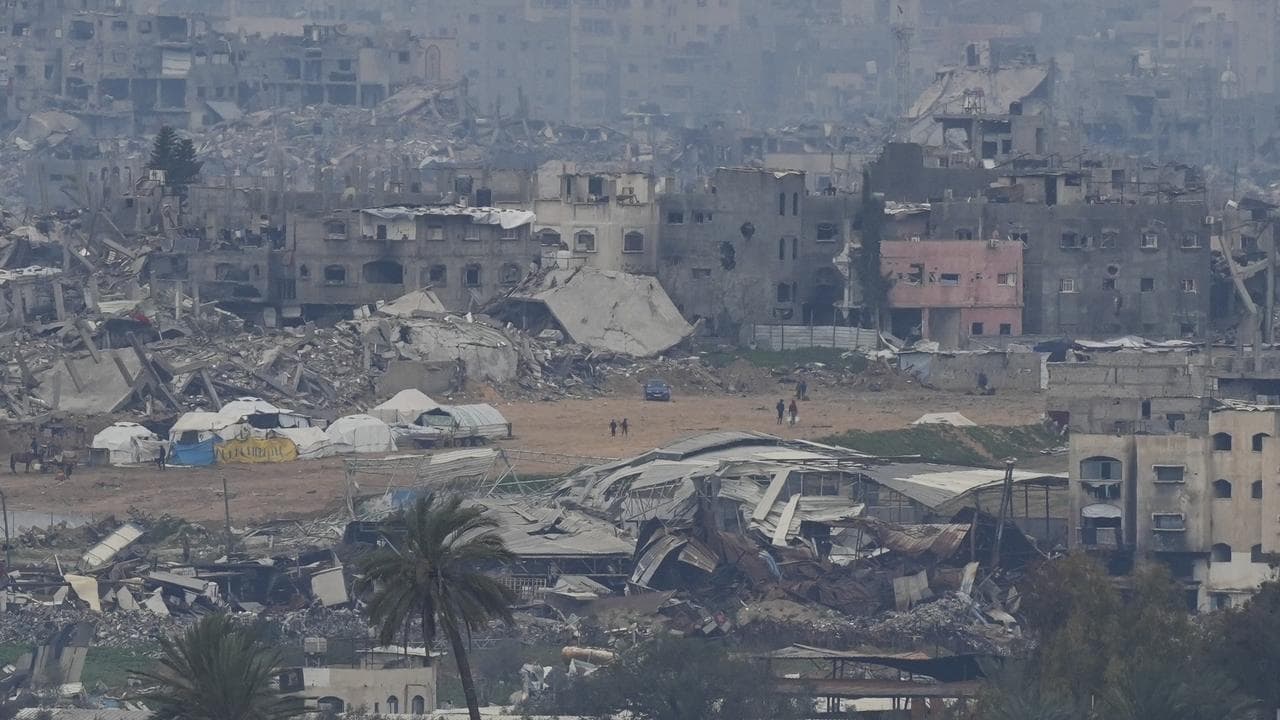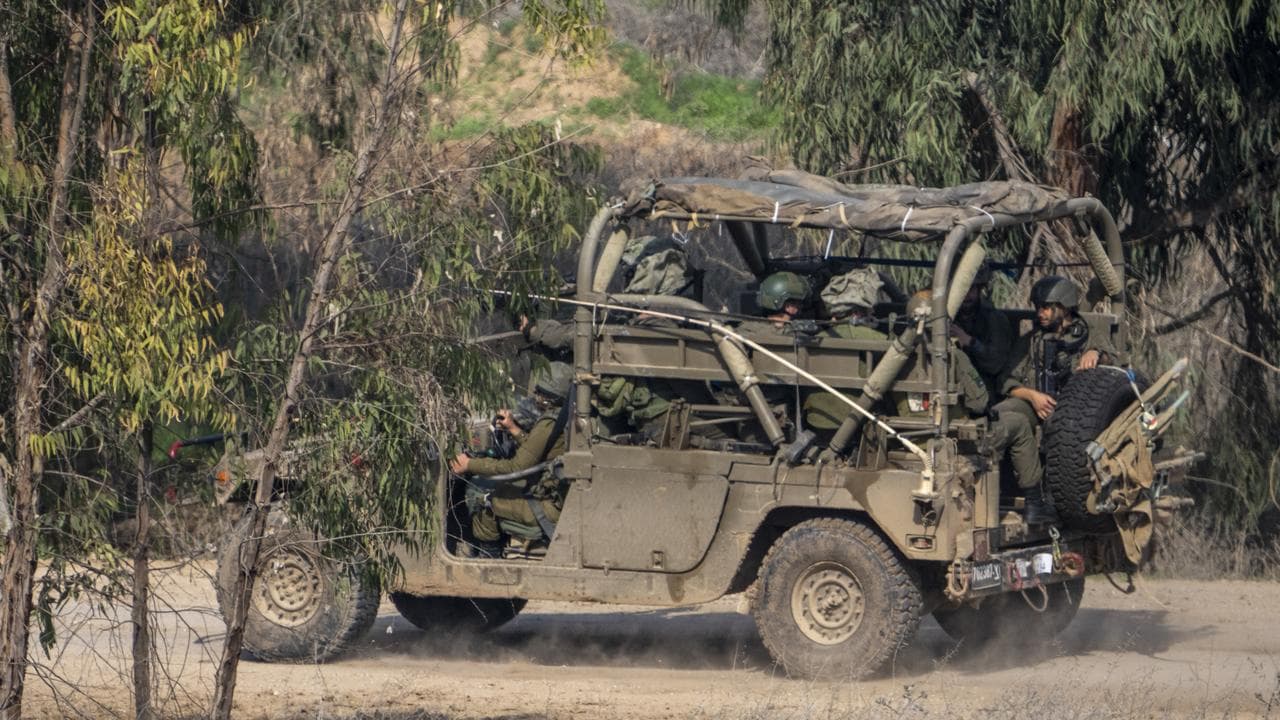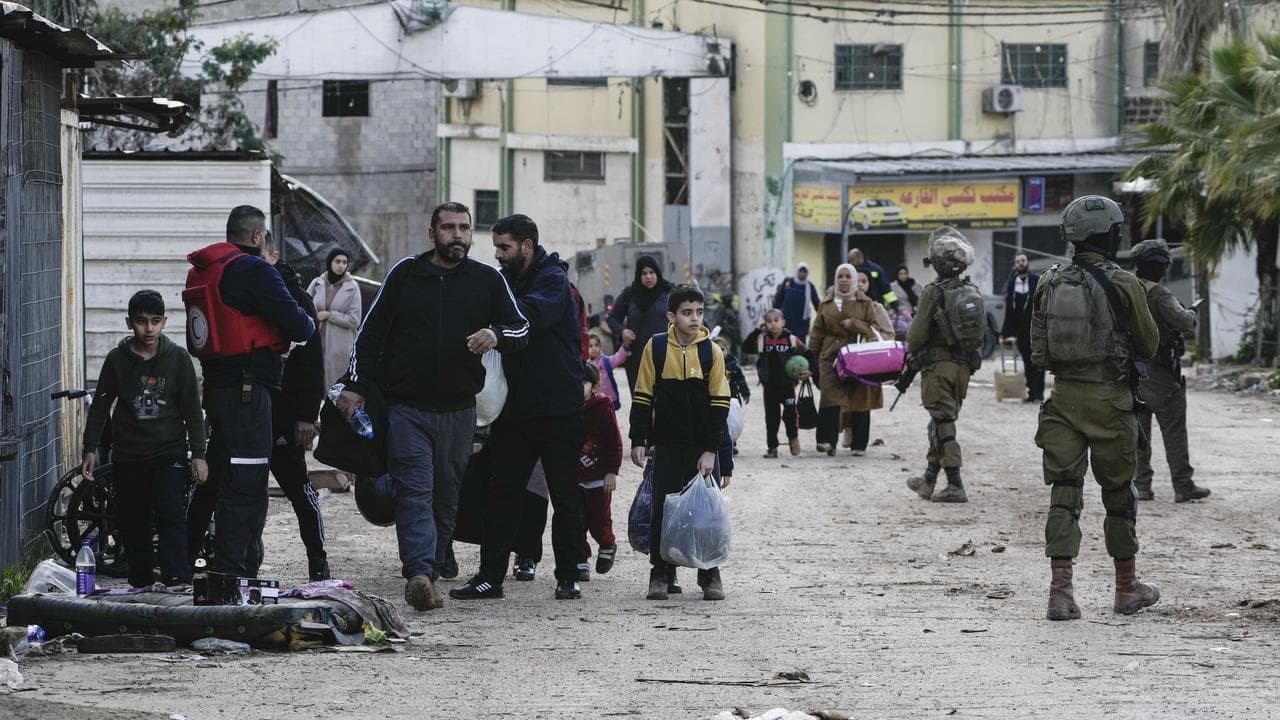
The Israeli military has withdrawn from an area of Gaza known as the Netzarim corridor that bisects the enclave, Hamas says - a move that was expected under the ceasefire agreement between Israel and the Palestinian militant group.
An Israeli security source, requesting anonymity as they were not authorised to speak publicly, confirmed on Sunday the Israeli military was withdrawing from its positions in central Gaza.
Israeli forces had already reduced their presence there.

Hamas celebrated the withdrawal as a victory and the Hamas-run police force deployed to the area to manage the flow of Palestinians crossing through.
The Israeli military had no immediate comment.
Reuters footage showed what appeared to be Israeli military vehicles moving away from the coast and towards the Israeli border.
Since the early months of the war Israeli forces had occupied the roughly 6.5km-long corridor south of Gaza City that stretches from the Israeli border to the Mediterranean Sea.
The corridor cut off Gaza's northern communities, including its largest metropolitan area, from the south.
Thousands of Palestinians have streamed through the corridor in recent weeks, returning to their homes in the north from southern Gaza where they had sought shelter from the war.
Some who crossed over have described their shock after seeing the destruction of communities and discovering what they said were human remains in areas where Israeli forces had withdrawn.
Much of northern Gaza has become a wasteland following Israel's devastating campaign.

After finding their homes destroyed, some Gazans have gone back to the south, while others have set up tents where their homes once stood.
Former American soldiers employed as private contractors have been deployed to inspect vehicles passing through the corridor in recent weeks following the ceasefire agreement that was implemented on January 19 after more than 15 months of war.
Crowds of people were seen traversing the corridor on Sunday as Hamas announced the Israeli military had withdrawn, while a long line of cars gathered, waiting to pass through.
Hamas military and police forces have increased their public presence since January's ceasefire, in what analysts say is an intentional message that the group has not been defeated.
Israel vowed to destroy Hamas for its October 2023 attack in which 1200 people were killed, most of them civilians, and more than 250 taken hostage.
More than 46,000 people have been killed by Israel's retaliatory assault, according to Palestinian health authorities, who say most of the dead are women and children.
The withdrawal of troops in Gaza comes as a pregnant 23-year-old Palestinian was killed by Israeli security forces on Sunday in the Nur Shams refugee camp in the occupied West Bank, the Palestinian health ministry said.
Sundos Jamal Mohammed Shalabi, who was eight months pregnant, was struck by Israeli gunfire, the ministry said in a statement, adding her unborn child did not survive and Shalabi's husband was critically injured.

Details of Shalabi's death were not immediately clear.
Israel's military had no immediate comment.
The Palestinian state news agency cited eyewitnesses as saying that Shalabi and her husband were shot by Israeli forces as they were trying to leave their home.
The Israeli military had said it was expanding a counter-terrorism operation in the north of the West Bank to Nur Shams, a refugee camp close to the Palestinian town Tulkarm.
Israel's military, police and intelligence services started the counter-terrorism operation in Jenin on January 21, described by officials as a "large-scale and significant military operation".
The operation expanded to Tulkarm, Al Faraa and Tamun, with the military saying it was targeting militants.
Israel, viewing the West Bank as part of a multi-front war against Iranian-backed groups established around its borders, launched the operation after reaching a ceasefire in its war in Gaza against the Palestinian militant group Hamas.
Thousands of Palestinians have fled West Bank homes in the wake of the military campaign and the widespread destruction.




